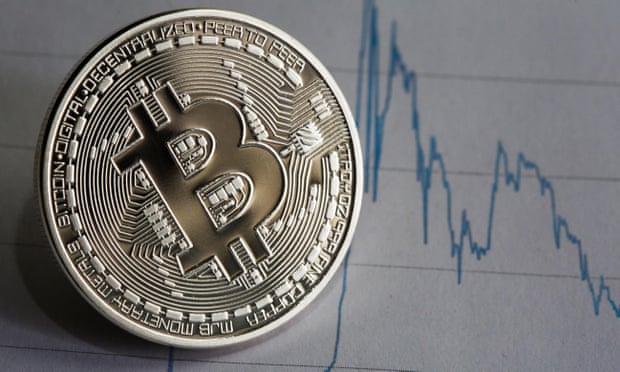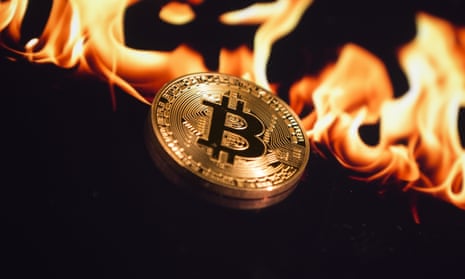The value of bitcoin plunged 13.5% in the early hours of Thursday after news hit that South Korea is planning to ban cryptocurrency trading.
News of the ban follows the raiding of local cryptocurrency exchanges by police and tax authorities over alleged tax evasion, as one of the key nations driving the demand for bitcoin and other virtual currencies attempts a clampdown.
“There are great concerns regarding virtual currencies and [the] justice ministry is basically preparing a bill to ban cryptocurrency trading through exchanges,” justice minister Park Sang-ki said.
The news sent bitcoin prices tumbling $2,000 from midnight UK time from a high of $14,890, according to data from Coinbase, before beginning to recover in the early hours of the morning.
In South Korea, where bitcoin trades at around a 30% premium compared to other countries, the local price plunged as much as 21% after the minister’s comments.
Q&AWhat is bitcoin?
Show

Bitcoin is a 'cryptocurrency' – a decentralised tradeable digital asset. Invented in 2008, you store your bitcoins in a digital wallet, and transactions are stored in a public ledger known as the bitcoin blockchain, which prevents the digital currency being double-spent.
Cryptocurrencies can be used to send transactions between two parties via the use of private and public keys. These transfers can be done with minimal processing cost, allowing users to avoid the fees charged by traditional financial institutions - as well as the oversight and regulation that entails. The lack of any central authority oversight is one of the attractions.
This means it has attracted a range of backers, from libertarian monetarists who enjoy the idea of a currency with no inflation and no central bank, to drug dealers who like the fact that it is hard (but not impossible) to trace a bitcoin transaction back to a physical person.
The exchange rate has been volatile, with some deeming it a risky investment. In January 2021 the UK's Financial Conduct Authority warned consumers they should be prepared to lose all their money if they invest in schemes promising high returns from digital currencies such as bitcoin.
In practice it has been far more important for the dark economy than it has for most legitimate uses. In November 2021 it hit a record high of more than $68,000, as a growing number of investors backed it as an alternative to other assets during the Covid crisis.
Bitcoin has been criticised for the vast energy reserves and associated carbon footprint of the system. New bitcoins are created by “mining” coins, which is done by using computers to carry out complex calculations. The more bitcoins that have been "mined", the longer it takes to mine new coin, and the more electricity is used in the process.
Once a bill is drafted, legislation for an outright ban of virtual coin trading within South Korea will require a majority vote of the total 297 members of the National Assembly, a process that could take months or even years.
Once enforced, South Korea’s ban “will make trading difficult here, but not impossible,” said Mun Chong-hyun, chief analyst at EST Security.
“Keen traders, especially hackers, will find it tough to cash out their gains from virtual coin investments in Korea but they can go overseas, for example Japan,” Mun said.
There are more than a dozen cryptocurrency exchanges in South Korea, according to the Korea Blockchain Industry Association. Bitcoin’s 1,500% surge since January 2017 has spurred huge demand from many demographics, from college students to housewives, stoking worries of a growing gambling addiction in the country.
By Thursday afternoon, more than 55,000 South Koreans had signed a petition asking the presidential Blue House to stop the crackdown on the virtual currency, bringing the government website to a halt.
The South Korean-prompted market fluctuation came a day after billionaire investor Warren Buffett said he would never invest in Bitcoin or other cryptocurrencies, and predicted the wildly popular assets are in for a fall.
But many do not share Buffet’s scepticism, with companies such as Kodak rocketing in value by launching new cryptocurrencies and some simply by putting the word blockchain in their name.
